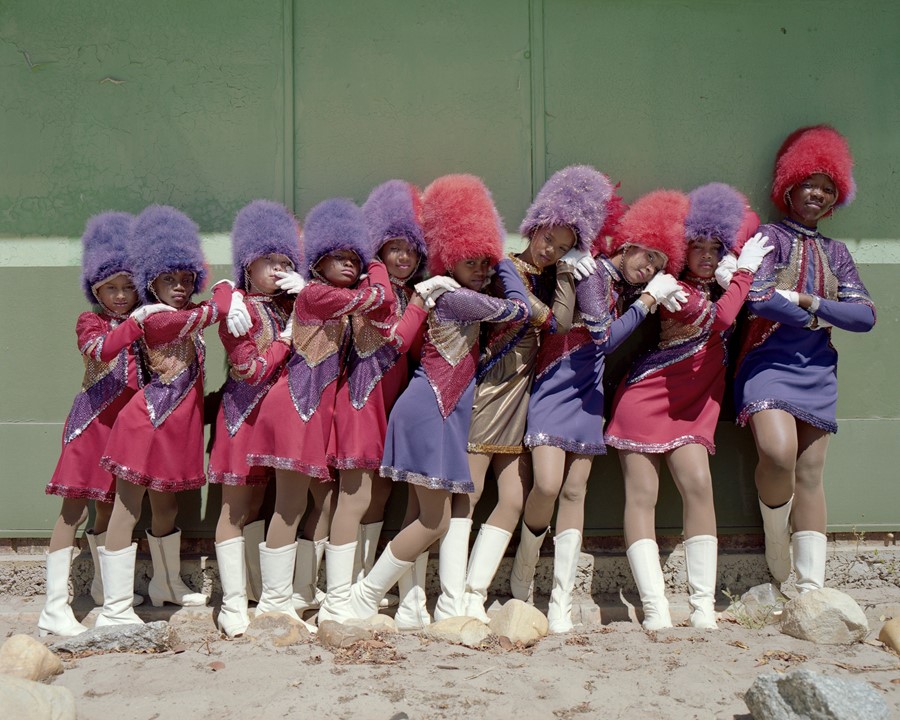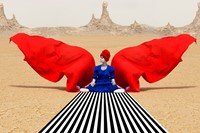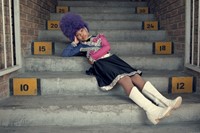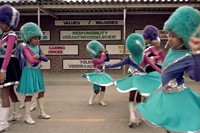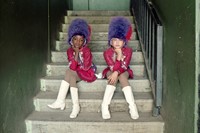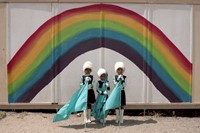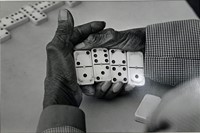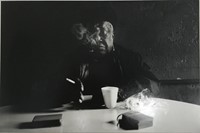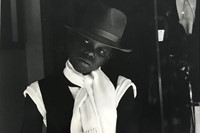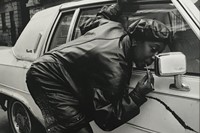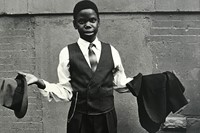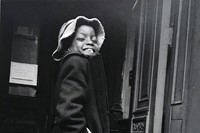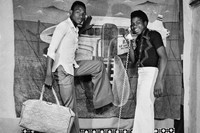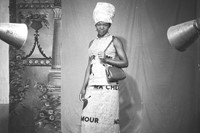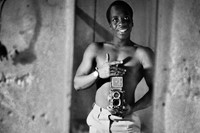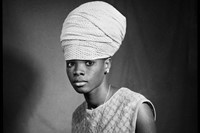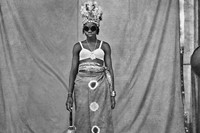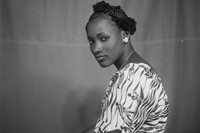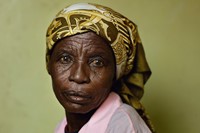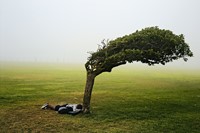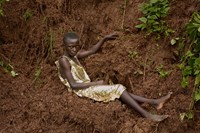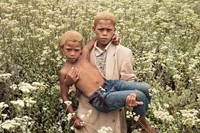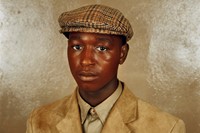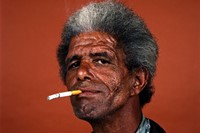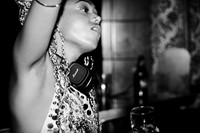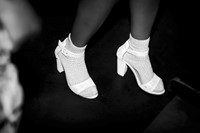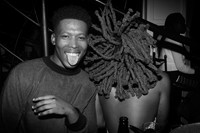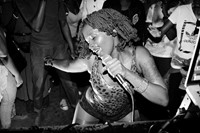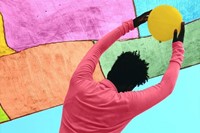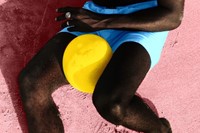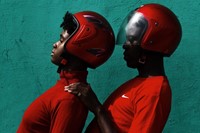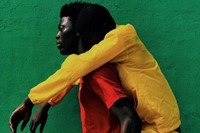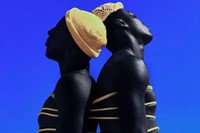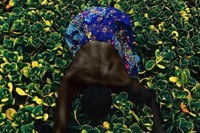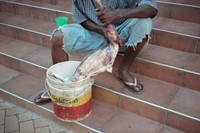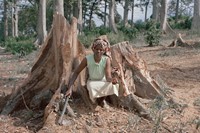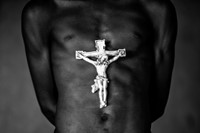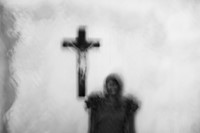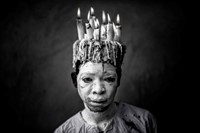As the fair celebrating African artists working today opens in London, we spotlight some photographers taking part in this year’s show
1-54 Contemporary African Art Fair is now in its seventh year, having just opened in London at Somerset House. Dedicated to celebrating work by contemporary artists from Africa and the African diaspora, the fair fills Somerset House’s rooms, halls and famous courtyard with paintings, sculptures, photography, films, and installations. Here, a closer look at some of the photographers whose work features in the 2019 edition of 1-54.
Aïda Muluneh
Yesterday NOWNESS debuted the latest in their ‘Photographers in Focus’ series, this time spotlighting a new project by the Ehtiopian image-maker Aïda Muluneh. Water Life was commissioned by WaterAid, and the vibrant series of large-scale images was shot in the hottest place on Earth: the Danakil Depression in Ethiopia. Herself the founder of a photography festival, Addis Foto Fest, Muluneh’s work intends to place African image-making on a world stage. “I do believe that the act of creativity is a spiritual provocation,” she says in the Adeyemi Michael-directed film. “Even when you look at traditional art from Africa, a lot of it is a spiritual manifestation.” Catch the series until October 20 at Somerset House.
Alice Mann
South African photographer Alice Mann took home the Grand Jury prize at this year’s Hyères International Festival of Fashion and Photography for her series Drummies. Mann’s subjects are the members of drum majorette troupes (nicknamed ‘drummies’, hence the series’ title), resplendent in their colourful sequinned costumes as they perform and rehearse. The all-female drummies that Mann photographed for the series hail from neglected communities in South Africa, and take deep pride in competing in the troupe. “This is part of my ongoing work exploring notions of femininity and empowerment in modern society,” Mann explains. “With my continued investigation into this subculture, I hope that these images can communicate the pride and confidence these girls have achieved through identifying as ‘drummies,’ in a context where they face many social challenges.”
Martine Barrat
Taking to the streets of Harlem, Martine Barrat’s portrait and documentary photography and films captured the lifeblood of the New York neighbourhood. For her seminal 1974 film, You Do the Crime, You Do the Time, Barrat collaborated with young people and gang members in Harlem. “I encouraged members of the gangs to use the video camera to sketch the reality of their lives and relationships with one another and with the outside world,” she has said of the project. “The camera in their hands is often a blunt instrument, but it seems to have a unique power to express the truth of their lives as they see them.” In 1-54, we see a quieter side of Barrat’s oeuvre via a series of portraits of Harlem characters in the midst of daily life.
Sanlé Sory
Sanlé Sory’s extensive archive of photographs taken in Burkina Faso was discovered by chance in 2011. Now, the septuagenarian image-maker’s photos are widely recognised the world over. Whether in his studio in Bobo-Dioulasso, at weddings and family parties, the city’s coolest clubs or his ad-hoc ‘dust balls’ (“I had a pickup truck, a generator, an amplifier and loudspeakers; so I decided to take them with me to the countryside. I would set them up in someone’s bar, and if there was no dance floor we just watered the ground to keep the dust down,” he told Another Man earlier this year), Sory’s oeuvre captured the youth culture, fashion and vivacious spirit of Burkina Faso in the 1960s, 70s and 80s.
Pieter Hugo
Photographs from two series by South African photographer Pieter Hugo are on show at 1-54. Kin, a series of portraits collated as a photo book of the same name in 2015, looks at Hugo’s own family and community in South Africa, ultimately exploring the photographer’s complex relationship with his home country (he has previously described the series as “an engagement with the failure of the South African colonial experiment and my sense of being ‘colonial driftwood’”.) Elsewhere, striking portraits from 1994 are also on show: his most recent work, the series focuses on children born in Rwanda and South Africa after the year 1994, a landmark year in both countries’ histories.
Musa N. Nxumalo
Soweto-based photographer Musa N. Nxumalo’s lens gravitates towards nightlife and parties in South Africa. Capturing his peers as they dance, DJ and (sometimes literally) light up the dancefloor, Nxumalo’s shots are helping to redefine how people see contemporary club culture. Nxumalo documents his vision of life as a young person in South Africa, and his captivating shots are universally engaging.
Prince Gyasi
Artist Prince Gyasi looks to his hometown of Accra when creating his bold photographs. Super-saturated and incorporating unexpected colours, Gyasi’s shots – which he captures on his iPhone – take on a surreal quality. “I shoot because I want the imagery and the art images to serve as a therapy to human emotions, that’s why I play with colour a lot,” he explains. Also the founder of an organisation that helps young people in Accra access education, Gyasi aims to inspire young people to engage with art.
Hellen Gaudence
“My work centres around the experiences of Africa-born migrants resettled in the United States; specifically, the interaction between identity, memory, and place,” says Tanzania-born, New York-based photographer Hellen Gaudence. She became a permanent resident in the United States thanks to “a random selection of the Diversity Visa Lottery”, and has since explored themes of migration and belonging in her work. Gaudence’s meditative practice makes for captivating portraits and colour-filled landscapes, documenting “arbitrary moments spent in my home country after prolonged absence”.
Mario Macilau
Mário Macilau is based in Maputo, Mozambique, the city that he grew up in as a teen. Macilau’s connection to his home country is evident in his photography, which he began in earnest at the age of 14 while living on the streets. Soft, black-and-white portraits taken in natural light are often rooted in an exploration of identity and politics, and Macilau will typically spend months completing a series. The considered, arresting photographs in the series Faith, for example, stem from the artist’s interest in animism – the belief that spiritual energy exists in objects, places, creatures – in Mozambique’s modern religious landscape.
1-54 Contemporary African Art Fair is at Somerset House, London, from October 3 – 6, 2019.
